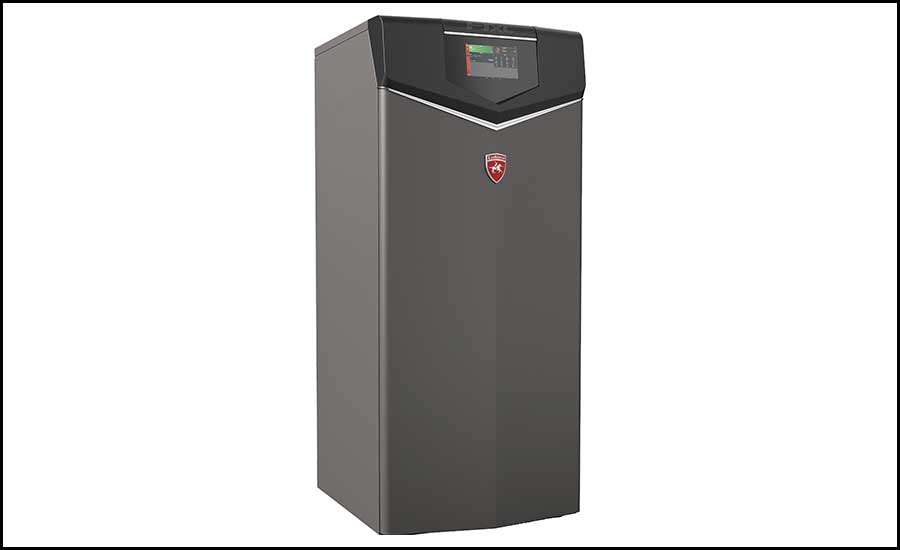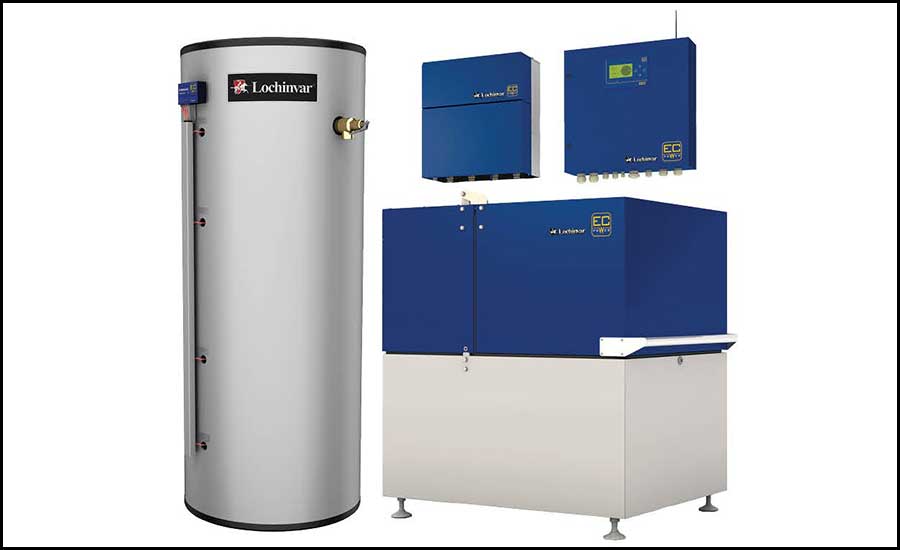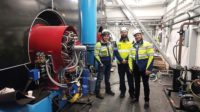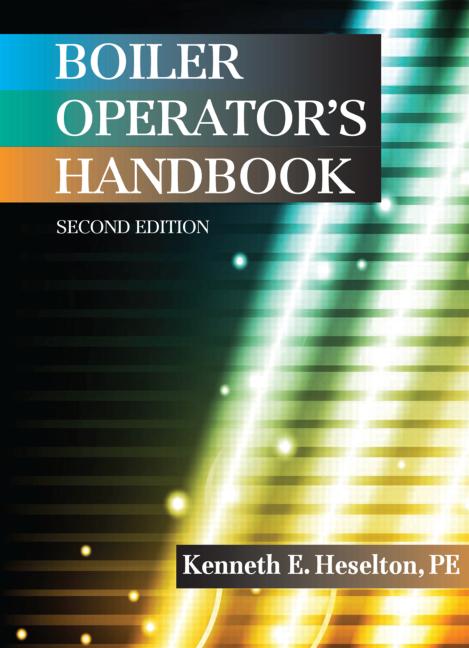Companies wanting to expedite their decarbonization efforts should take a fresh look at recent developments in commercial boiler technology to better understand how these products can be leveraged to fit their needs.
Federal, state, and local decarbonization efforts are rapidly changing, sparking wide-ranging research and development (R&D) efforts throughout the HVAC industry. This R&D push is producing significant innovations — not just in commercial boilers but in cogeneration, connectivity, and smarter controls.
Manufacturers, like Lochinvar, are embracing this industry shift by dramatically ramping up R&D capabilities. These efforts are led by internal policy teams that closely monitor the latest regulatory updates and rebate/incentive opportunities that help guide product development.
Technology Breakthroughs in Commercial Boilers
Contrary to now-dated assumptions, the output of electric boilers is already on par with most units burning fossil-fuels — and even offer some distinct superiorities. These include safety advantages, easy installation, fast startup/shutdown time, and quiet operation. Moreover, an electric boiler converts almost 100% of the electrical energy into heat with no stack or heat transfer losses.

Another breakthrough in boiler technology is the advancement of fire-tube boilers. Fire-tube boilers present engineers with highly efficient technologies that have a smaller footprint than other types of boilers. Lochinvar’s FTXL 1.0 Boiler is designed to handle frequent fluctuations in the system flow rate thanks to variable flow. The unit can operate over a wide range of flow rates with very low pressure drop. This permits the installation of a full flow system and eliminates the time and material costs associated with primary and secondary piping as well as pumps needed to maintain the flow in a water-tube boiler.
Tapping into Combined Heat and Power Systems
Cogeneration (also known as combined heat and power [CHP]) allows a facility to simultaneously produce energy-efficient heat for domestic hot water and electricity to reduce energy consumption and electric costs. Cogeneration can be a great solution for commercial facilities that are seeking a multifunctional unit to support their sustainability goals.
Lochinvar’s unique XRGI® 25 Micro-CHP unit is powered by an internal combustion engine. Using natural gas as fuel, a facility with an XRGI® 25 cogeneration system produces energy-efficient heat for domestic hot water and electricity to reduce energy consumption and electric costs. Once installed, Micro-CHP can achieve conversion efficiency of up to 93%.
Smarter Controls Reduce Emissions
CO2 emissions decrease with each incremental increase in boiler efficiency, but reaching 99% or greater thermal efficiency is a tall order. That’s why today’s most innovative commercial boilers feature enhanced controls that take advantage of real-time data to help units operate more efficiently. When there’s a call for heat, the unit modulates to provide the precise amount of output needed to satisfy demand, eliminating wasteful short cycling.

Lochinvar’s CREST® boiler with Hellcat® Combustion Technology utilizes RealTime O2 Trim® combined with Lochinvar’s Smart Touch™ control to intuitively adapt to its environment (including altitude) and adjust to accommodate peak demand, providing efficient operation.
Convenience of Connectivity
Meeting sustainability goals requires vigilant monitoring of units in the field. Today, there are connectivity tools, like Lochinvar’s CON·X·US® remote connectivity platform, that can serve as a mobile portal to a database of real-time and historical data on boilers in multiple locations. Engineers can quickly and easily perform a remote check on the operating status or reprogram boiler functions — whether it’s a single boiler in Boston or an eight-unit cascading system in Boise, Idaho. Providing this type of connectivity is essential to enabling the most reliable and efficient space heating possible for the customer.
Training on New Technology
Along with the development of new products comes the need to train facility managers, engineers, and technicians on new technology. HVAC manufacturers’ in-house training capabilities, like Lochinvar University, are essential to ensuring professionals have the opportunity to learn on the job. All HVAC professionals can benefit from continued education, especially for the newer technologies that are rapidly increasing in popularity. As a part of its ongoing training efforts, Lochinvar plans to soon redeploy its mobile, 30-foot, climate-controlled training truck — ideal for year-round usage. Onboard is a 60-inch television that enables access to training videos and how-to guides as well as up to six different Lochinvar units. Every unit is piped and wired so the unit screens function as simulators, and the piping is shown as it would be in a real-world application, complete with pumps and an expansion tank. Lochinvar’s mobile training truck will allow for top-tier, on-the-job training for contractors throughout the country.
The Future of Boiler Technology
There’s no question that boilers remain a viable and popular option for commercial applications. Manufacturers continue to play a critical role in the development of efficient, sustainable, and innovative boiler technology that supports the evolving sustainability needs of the commercial sector.
By Dustin Wiggins, segment development manager, commercial water heating, Lochinvar







